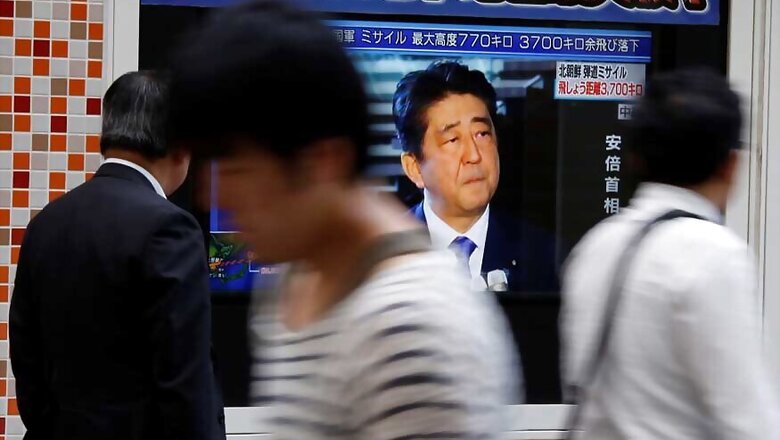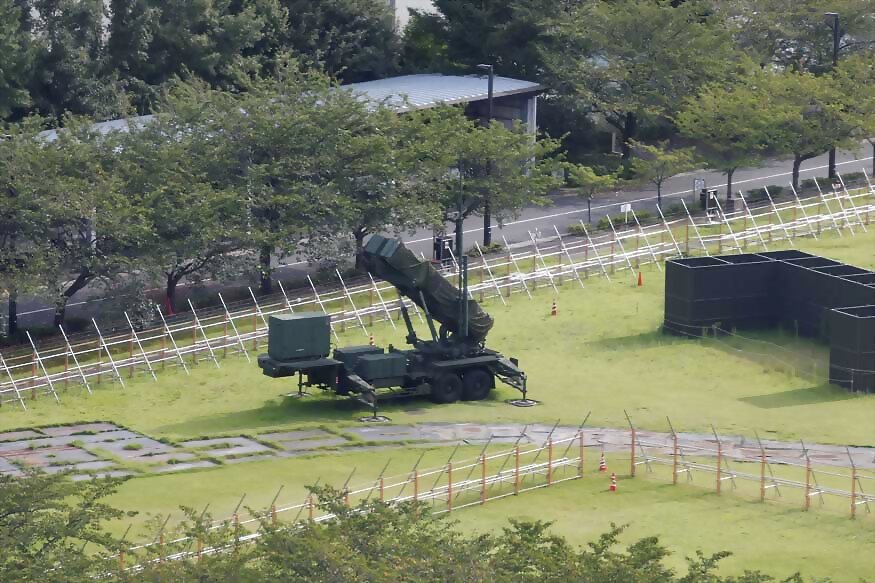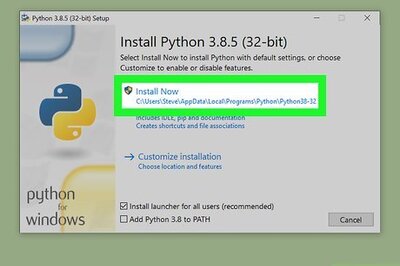
views
Tokyo: "Missile launch! Missile launch! A missile appears to have been launched from North Korea. Take cover in a building or underground."
To the accompaniment of blaring sirens and emergency phone alerts, that was the terrifying loudspeaker message that jolted millions of Japanese awake in the early hours as North Korea blasted its second missile over the country in less than a month.
But for local residents on the flightpath over the northern Japanese island of Hokkaido, there was no question of this becoming a routine event.
"I cannot say that we are used to this. I mean, the missile flew right above our town. It's not a very comforting thing to hear," said Yoshihiro Saito, who works in the small fishing town of Erimo on Hokkaido.
"It's pretty scary. I heard that it went 2,000 kilometres in the Pacific and dropped in the sea" where 16 of his ships were operating under the missile's flight path.
Citizens in earthquake-prone Japan are well-drilled in seeking cover when emergency strikes but with only a matter of minutes from launch to impact, several residents voiced a feeling of helplessness.
"It's really scary. The government tells us to flee to stable buildings but we can't do that quickly. Our colleagues offshore can never take cover," said Yoichi Takahashi, 57, a fisheries official in Kushiro on Hokkaido.
"It has now happened twice to us ... We'll have restless days from now on," Takahashi told AFP.
Isamu Oya, 67, a sushi restaurant owner in Erimo, told AFP: "The government told us to take cover in a stable building or underground, but there isn't one here. We have no choice but just do nothing.
"Scary? Yes, but we can't help it."

A unit of Patriot Advanced Capability-3 (PAC-3) missile is seen at the Defense Ministry in Tokyo on September 15, 2017. (Photo: Reuters/Toru Hanai)
'Dangerous provocative action'
Breakfast television programmes across Japan, usually broadcasting a light-hearted diet of children's shows and gadget features, instead flashed up the warning message as the intermediate range ballistic missile flew overhead.
Mobile carriers in Japan sent automatic text messages to rouse customers awake.
Train services between Japan's main island and Hokkaido were temporarily suspended after the launch and bullet train services were also halted.
Airports in the area appeared to be unaffected, however, with Shinya Matsuura, an official at Obihiro airport, near the missile's flightpath, telling AFP that passengers there were calm and quiet.
"We are just relieved it did not affect us."
An ashen looking Shinzo Abe, Japan's prime minister, said his country could "never tolerate" such "dangerous provocative action that threatens world peace".
"If North Korea continues to walk down this path, it has no bright future. We must make North Korea understand this," he added.
The Japanese government said its priority was to ensure the safety of its citizens.
There were no immediate reports of falling debris or damage but Tokyo stressed that a missile launch without warning could have destroyed shipping or aircraft in the area.
But some locals living on the missile flight path fretted that repeated missile launches could have a damaging impact on their day-to-day lives.
"We are afraid that this may have an impact on our life, ranging from fishing to tourism," said Hironori Matsura, an official at the anti-disaster division at Erimo town hall.
Sushi chef Oya said he thought the missile wouldn't affect his trade as most of his customers were local but acknowledged that "I'm afraid this may affect a flow of tourism to Erimo".
Meanwhile, others displayed a grim determination that life would go on.
Saito admitted that the missile has been dominating conversation in the town -- "like how scary it is" -- but said: "No one really has talked about stopping their work or suspending their operations."




















Comments
0 comment